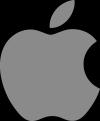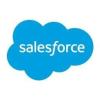Compiler Engineer (quantum Solution)
Remote, GB, United Kingdom
Job Description
??????????????????????????????
Looking for a Next-Gen Compiler Engineer to Support the Fundamentals of Quantum Computer
================================================================================================================================
???? / :
---------------------------
FTQC?????????????IR?????ISA?????????????????????????? QURI SDK?????????????????????????????????????? ?????????????????????? ???????????????????????????????????? ??????????????????????????? Design intermediate representation (IR), instruction set architecture (ISA) and transform/optimization passes for FTQC Architecture Implementation. Design and implement transpilers/compilers in QURI SDK (a quantum computing SDK). Design and develop quantum programming language for users. Implement benchmarking which utilizes hardware-/architecture-dependent noise models. Work on technical specifications and performance tuning with researchers and developers.
?????????? / What is a Quantum Computer?
--------------------------------------------
???????????????????????????????????????????????????????????????????????????????????????????????????????????????????????????????????????????????????????????????????????????????????????????
Quantum computers are gaining attention as an emerging technology poised to shape the future of society through their extraordinary computational capabilities, making possible what was once only imaginable. While realizing this future requires the development of various technologies, recent technical advances are bringing the dream of a "Quantum Computer" closer to reality. This indicates that the quantum industry is approaching a major turning point. In this context, concrete efforts to apply quantum technology are now progressing in earnest within the industrial sector.
QunaSys?? / About Us:
-------------------------
?????????????????????????????????????????????????????????????????????QunaSys?????????????????????????????????????????????????????????????????????????????????????????????????
??????????????NISQ??????????????????????????Early-FTQC???????????????????????FTQC??????????????????????????????QunaSys?????????????????????????????????????????????????????????????????????????????????????
The practical use of quantum computers depends not only on advances in hardware but also on progress in algorithms and software to make the technology truly usable. At QunaSys, our mission is to "Build the future where quantum computers contribute to industry." We develop algorithms and software to maximize the performance of quantum computers, thereby contributing to their integration into society.
The journey toward practical quantum computing is evolving from NISQ (Noisy Intermediate-Scale Quantum Computers, which lack error correction) to Early-FTQC (early Fault-Tolerant Quantum Computers), and ultimately to full-scale FTQC (Fault-Tolerant Quantum Computers). In this evolving landscape, QunaSys addresses real-world industrial challenges by evaluating application performance across algorithms, architectures, and hardware. We also develop and provide a software development platform that accelerates this progress.
The QS (Quantum Solution) team develops software, ranging from algorithms to Architecture, for current NISQ devices, next-generation Early-FTQC, and future FTQC systems, such as the QURI SDK.
????? / Why We Are Hiring:
------------------------------
????FTQC????????????????????????????????????????????????????????
QunaSys???FTQC??????????????????????????????????????????????????????????????????????????????QURI SDK????????????????????????????????????????????????????????????
????????????????????IR?????ISA?????????????????????????????????????????
As the quantum industry advances toward the realization of FTQC, the importance of compiler infrastructure that supports quantum hardware with appropriate architecture is growing rapidly.
At QunaSys, we are strengthening the development of quantum compilers--an essential component for implementing FTQC on real hardware--and integrating them into the QURI SDK. This SDK includes features to evaluate performance by mapping user-defined quantum algorithms to various architectures. Through these efforts, we aim to deliver greater value to users and become the top choice in the increasingly complex field of quantum application development.
For this role, we are seeking engineers to develop intermediate representation (IR), Instruction Set Architecture (ISA), and transformation/optimization passes that will drive our progress forward.
????? / Required Qualifications, Capabilities, and Skills:
--------------------------------------------------------------
?????????????????????LLVM?MLIR?????? C++ / Rust / Python ?????????????????????? ????????????????????? ?????????????????? Git??????????? Hands-on experience with compiler and transpiler, including LLVM, MLIR, and personal development is also welcomed Experience working on at least intermediate-scale software with C++/Rust/Python Basic understanding of quantum circuit and quantum algorithm Understanding of algorithms and data structures Experience of working in a team of engineers with tools like Git
????? / Preferred Qualifications, Capabilities, and Skills:
---------------------------------------------------------------
????????????????????? Qiskit / Cirq / PennyLane?????SDK???? ???????????? ????IR????????????? HPC????????????? Mathematical knowledge (linear algebra, graph theory, optimization etc.) Experience working on quantum SDKs (Qiskit, Cirq, PennyLane etc.) Knowledge of quantum error correction Hands-on experience designing IR or implementing optimization pass Hands-on experience with HPC or distributed processing environment
?????? / Following Attributes Will Be a Good Match with Us:
---------------------------------------------------------------
??????????????????????????????????? ?????????????????????????????????? ????????????????????????????????? ???????????????? Ability to design and implement based on abstract specifications and novel models. Interest in and ability to engage with multiple layers of the quantum computing stack--from algorithms to physical implementation. Commitment to continuous product quality improvement through team discussions and feedback. Enthusiasm for tackling challenges in uncharted fields.
????? / You Will Be Able to:
--------------------------------
???????????????????Early-FTQC/FTQC???????????????????? ???????????????????????????????????????????????????????? ?????????????????????????????????????????????????????????????????? ????????????????????????????????????????????????? Experience the development of next-generation compilers from the early stages of the industry. Opportunities to work on core technologies aimed at Early-FTQC and FTQC are rare. Be at the heart of quantum technology. Gain a deep understanding of both quantum algorithms and hardware, and tackle key technologies to maximize quantum computer performance. Bridge cutting-edge research and practical development. Collaborate with quantum research institutions and hardware vendors worldwide to turn research outcomes into real products. Exercise autonomy in technology development. Lead the entire process from design to implementation and improvement, allowing you to broaden your skill set.
???? / Development Environment:
-----------------------------------
??: Python, Rust, C++ ?????????????: ??????????? (Qulacs, cuQuantum, Qiskit etc.), NumPy, SciPy ????: GitHub Actions ???????: GitHub ????????????: Slack, Notion, Zoom ?????: ????????????? (VS Code, Vim, Cursor, JetBrains etc.), Docker, Jupyter Notebook, Google Collaboratory Languages: Python, Rust, C++ Frameworks/Libraries: Quantum computing libraries (e.g., Qulacs, cuQuantum, Qiskit), NumPy, SciPy Infrastructure: GitHub Actions Version Control: GitHub * Development Tools: Flexible choice of editors (e.g., VS Code, Vim, Cursor, JetBrains), Docker, Jupyter Notebook, Google Collaboratory
Beware of fraud agents! do not pay money to get a job
MNCJobs.co.uk will not be responsible for any payment made to a third-party. All Terms of Use are applicable.
Job Detail
-
Job IdJD3289267
-
IndustryNot mentioned
-
Total Positions1
-
Job Type:Full Time
-
Salary:Not mentioned
-
Employment StatusFull Time
-
Job LocationRemote, GB, United Kingdom
-
EducationNot mentioned



